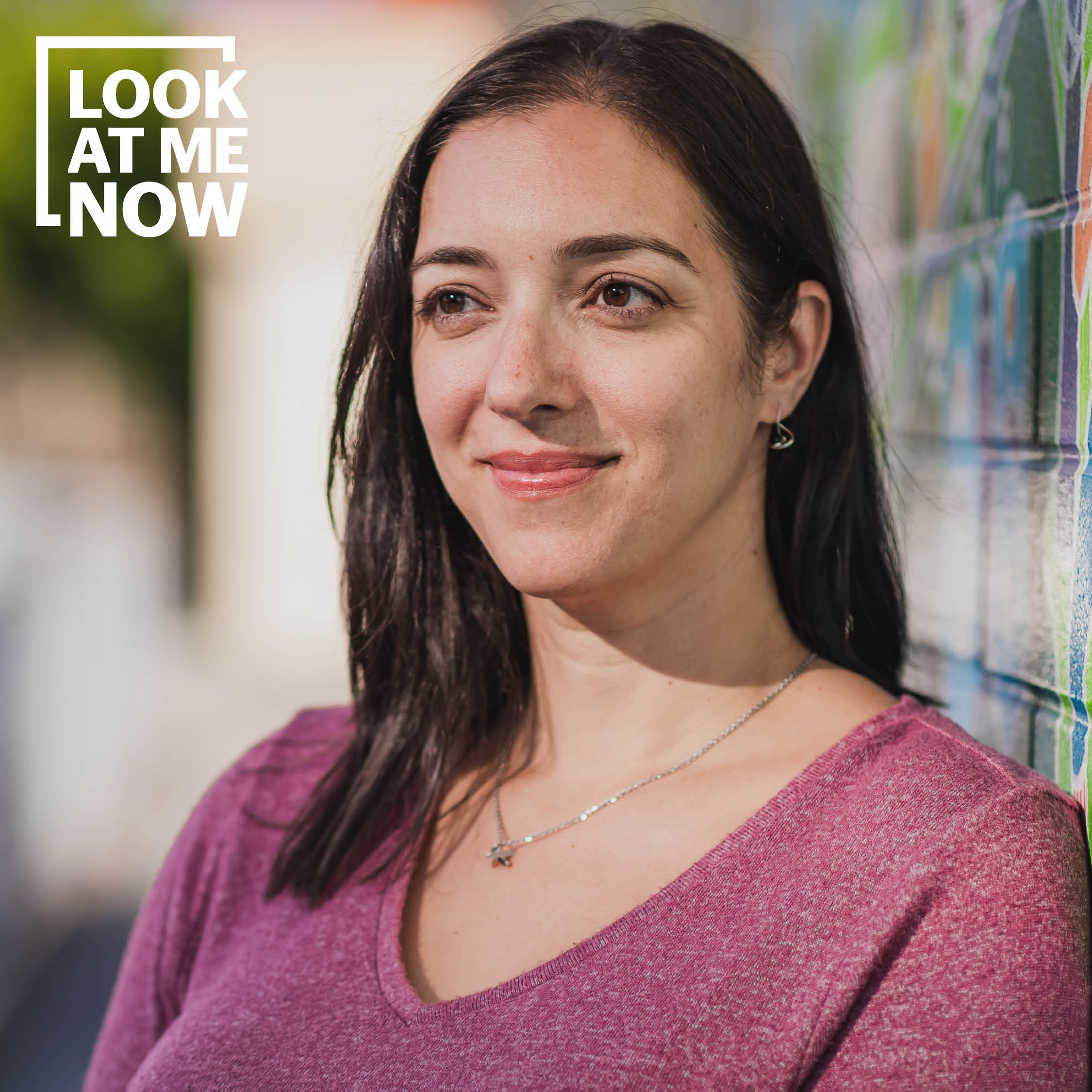Stefanie Volpe loves her job! As a Mentor Coordinator with The Family Education & Support Centre, she supports youth volunteers who act as mentors for the organization’s after-school program. Stefanie loves working with the youth. She enjoys seeing them progress and grow in their roles and works hard to help them move forward with their own goals.
---

Tell us about your job.
I’m a Mentor Coordinator at The Family Education & Support Centre, overseeing a program aimed at recruiting youth (ages 15-24) to become mentors at our after-school program (with kids aged 5-12). They volunteer at the program and gain valuable experience they can use towards their future career or educational goals. I supervise, organize, and mentor these young volunteers for our program.
What do you love about your job?
I love many things about my job! The first thing is that my coworkers and supervisor are very inclusive and understanding about my sight loss. I am not defined by my eyesight but rather what I bring to the organization. My employer is very accommodating and flexible with whatever I need to do my job more efficiently. I also love working with the youth mentors. I enjoy seeing them progress and grow as well as how I can help them move forward with their own goals.
Tell us about one of your proudest moments that you’ve experience in your role.
I was asked to write a grant application for a new program that would be attached to my mentor program. What I wrote was approved, and I was able to plan and implement another youth program called Future Leaders, where I offered even more opportunities for the youth mentors in our after-school program. I had never written a grant application before and was proud of the work that I was able to accomplish.
Do you have any professional goals that you’ve set for yourself?
My goal is to continue to do my job the best that I can. I am always learning in my role and want to continue learning and growing my skills and abilities.
How long have you been living with sight loss?
I’ve been living with sight loss for 23 years now (it started in my 20s). I have an inflammatory condition called Punctate Inner Choroidopathy (PIC) which affects the choroid and retina of the eye. Basically, my eye has a lesion, which in turn leaves a scar afterwards, causing sight loss. I have lost most of the central vision in my right eye and partial central vision in my left, meaning I have blind spots. This makes it harder to do things like read, see faces, or see fine detail. I am considered legally blind but still have partial sight.
What was your experience like with trying to find work as a Canadian living with sight loss?
Trying to find work as someone with sight loss means choosing the right time to disclose your vision loss. I discovered it was better to showcase my skills and talents first during an interview, and then disclose my sight loss. I wanted potential employers to assess me based on my qualifications, and not be distracted by any preconceived notions they might have about sight loss in the workplace.
What, if any, were the challenges that you faced in trying to secure employment?
A big challenge was just trying to find employment that was the right fit for me. For example, location played a huge part in my job search – I live in a suburban area and take public transit. Another challenge was encountering potential employers who possibly had preconceived notions of blindness and attempting to find the right way to explain how I could still do the job.
Have you ever experienced attitudinal barriers – such as stereotyping, pity, ignorance or inferiority – either in a job interview or on the job?
Years ago, I applied for a job for which I was fully qualified. When I told the interviewer about my eyesight, it was clear they had preconceived notions about living with a visual impairment. Even though I had all the experience, they were concerned about how my eyesight would be perceived by co-workers and how it would affect my performance.
How did CNIB’s Come to Work program help you secure employment?
It provided valuable access to talented and knowledgeable staff to discuss situations and ask for advice about interview skills when applying for jobs. CNIB’s Come to Work team was extremely helpful and was always available to answer all my questions.
Was there anything that you learned from CNIB’s Come to Work program that helped you with looking for work, or helped you in your current role?
I found the peer support really helpful. Knowing there were lots of other people with sight loss also looking for work or being successful in their current jobs helped boost my confidence in my own job search. I also learned other techniques and tips from my peers that could help me in my job.
If you could give one message to employers about working with Canadians with sight loss, what would you say?
Please look at the applicants’ talents and skills first. Realize that people with sight loss have a lot to offer in the workplace and can do their jobs just as well as a sighted employee given the right tools. Education is key. Learning about what visual impairment entails is the best way to understand your employee's abilities and needs.
What is your advice to employees that may have a co-worker with sight loss?
Don’t be afraid to ask questions! Learn about their sight loss and how they adapt to their job. Again, education around sight loss can help a co-worker understand more about that person's abilities.